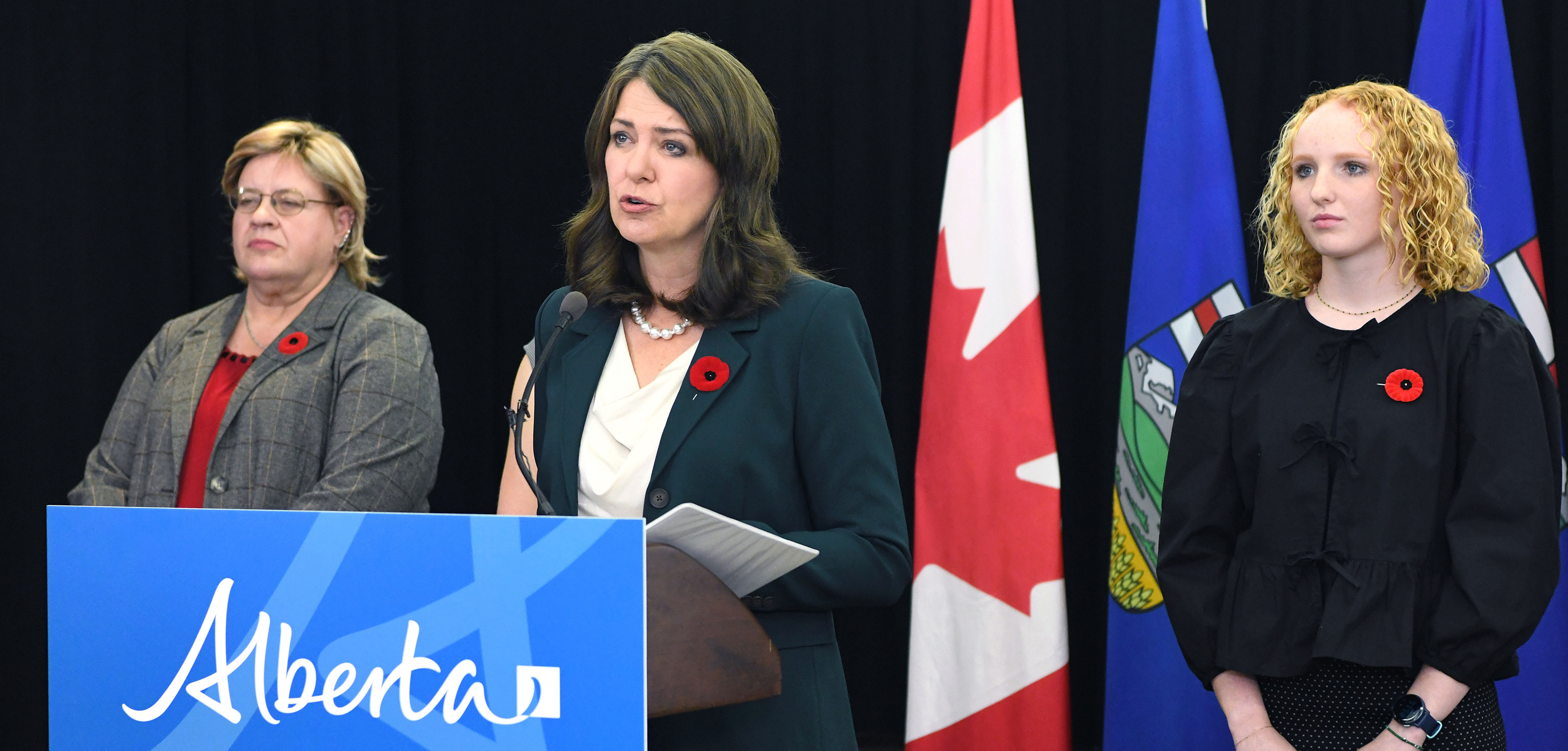The Alberta government has unveiled Bill 27, the Education Amendment Act, 2024, which proposes significant changes in schools, including parental notification for pronoun use, opt-in requirements for instruction on human sexuality or gender identity, and approval from the ministry of education for third-party materials on these topics. Premier Danielle Smith announced the bill on October 31, fulfilling a pledge she made earlier this year.
| The key changes proposed in Bill 27 |
| Parental notification for pronoun use: Schools would be required to inform parents and obtain permission if a student under 15 requests to be referred to by a different pronoun or name. For students aged 16 and 17, parental notification would still be necessary for such requests. |
| Parental opt-in for sex education: Parents would be required to provide explicit consent for their children to participate in formal education on topics of gender identity, sexual orientation or human sexuality. This is a shift from the current opt-out system to an opt-in approach, including a minimum 30-day notice. This does not apply to incidental or indirect references to the above topics. |
| Ministry approval of third-party teaching materials: Any third-party learning and teaching resources related to human sexuality, sexual orientation, or gender identity would require approval by the ministry of education. |
“Parents have the right to care for, teach and protect their children,” Smith said at a news conference following the tabling of the legislation.
Under the bill, schools must inform parents and seek consent if a student under 15 requests to be called by a different pronoun or name, while students aged 16 and 17 would require parental notification for such changes.
Jason Schilling, president of the Alberta Teachers’ Association (ATA), voiced strong opposition to the legislation, stating the bill could erode trust between students and teachers.
“This legislation is unnecessary and hurtful, and distracts from the real crisis — Alberta’s lowest-funded school system, overcrowded classrooms, and lack of resources and mental health supports,” Schilling said.
Critics warn the bill could endanger vulnerable students, who may not have supportive home environments, and create administrative challenges. Additionally, educators argue the shift from an opt-out to an opt-in system for sex education would strain already limited school resources.
“These added responsibilities will divert time and resources away from teachers’ primary role — teaching and supporting students,” Schilling said.
Schilling emphasized that teachers are committed to fostering inclusive environments. “Legally and ethically, teachers are required to create a welcoming and caring space that supports diversity and belonging for all students,” he said. “This is not just a professional obligation but a moral one.”
Concerned about the implications of the bill, Egale and other advocacy organizations are preparing legal actions in response to the bill.
Bennett Jensen, director of legal at Egale, a 2SLGBTQI advocacy group, condemned the bill, calling it illegal and unconstitutional.
“[It] will cause severe harm. We will be challenging it in court,” Jensen stated. Harini Sivalingam, director of the equality program at the Canadian Civil Liberties Association, expressed support for legal challenges.
| Learning during emergencies |
Bill 27 also addressed matters related to education during emergencies, with the following included:
|
“Restricting access to comprehensive sexual education is dangerous. Young people need vital information for developing healthy, safe, consensual relationships,” Sivalingam said.
Premier Smith defended the bill as necessary for consistency and parental involvement. “For a child’s mental health, parents need to know what’s going on,” she said.
The timing of Bill 27’s announcement, just days before Smith’s leadership review at the United Conservative Party’s annual general meeting, has raised speculation about its political motivations. Observers suggest it aims to solidify support among party members awaiting key campaign promises.
The legislation, if passed, is set to take effect on September 1, 2025. ❚



